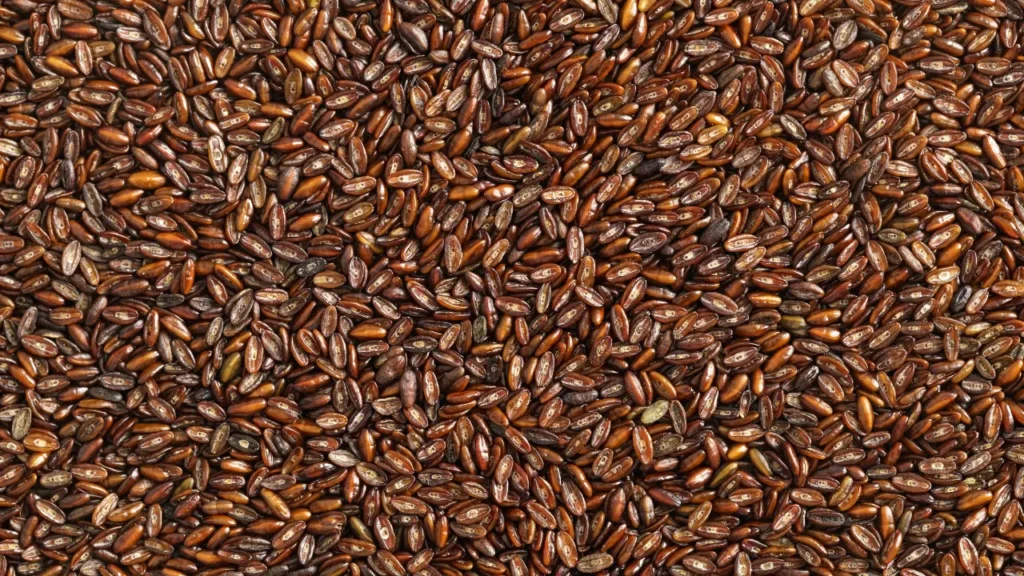The plant species known as black psyllium (Plantago ovata) is indigenous to the Mediterranean area and parts of Asia. This plant produces seeds that are high in soluble fibres, particularly mucilage, which accounts for between 50 and 70 percent of the seed weight. Black psyllium has been used for generations as a natural cure for a variety of health issues because of its high fibre content. Black psyllium has become increasingly well-liked as a dietary supplement and is frequently used to treat a variety of medical ailments. The nature, health advantages, recommended dosage, adverse effects, potential drug interactions, and other pertinent details surrounding black psyllium’s responsible use are all covered in this article.
You May Also Like:
Should You Try CBD for Focus? Here Are the Facts.
CBD for Concentration: 3 Epic Benefits that Boost Your Focus
Black Psyllium: Benefits, Dosage, Side Effects, Drug Interactions, And Other Important Information is an original (NootropicsPlanet) article.
Nature of Black Psyllium
Small, annual herb known as black psyllium has lance-shaped leaves and a branching stem. Small, white flowers are produced by the plant, and these are followed by seeds that are harvested for their fibre content. The seeds have a lot of soluble fibre, which when combined with water produces a gel-like material. The qualities of black psyllium that make it effective for treating a variety of health issues are caused by a component known as mucilage..
Health Benefits of Black Psyllium
Numerous health advantages of black psyllium have been demonstrated, including:
- Lowers Cholesterol: Research has revealed that black psyllium lowers overall cholesterol levels as well as LDL cholesterol, also referred to as “bad” cholesterol. The soluble fibre in black psyllium produces a gel-like substance that binds to cholesterol in the gut and stops it from being absorbed, which is what causes the decrease in cholesterol levels.
- Supports Digestive Health: Black psyllium works as a mild laxative, assisting in the control and promotion of regular bowel motions. Additionally, its gel-like composition aids in calming the digestive system and reducing inflammation.
- Supports Weight Management: Studies have indicated that black psyllium supports weight management by increasing satiety and lowering calorie absorption. This is because it has the capacity to absorb water and congeal into a gel-like substance in the gut, which slows down digestion and lowers calorie absorption.
- Supports Heart Health: Black psyllium has been demonstrated to support heart health and assist maintain healthy blood pressure levels. Its capacity to lower cholesterol levels and lower the risk of cardiovascular disease is the reason behind this.
Black psyllium has been demonstrated to support blood sugar control, making it beneficial for those with type 2 diabetes. This is because of its capacity to slow down the digestion of carbs and lessen the post-meal blood sugar increase.

Chemistry of Black Psyllium
Black psyllium seeds are high in soluble fibre, particularly mucilage, which accounts for between 50 and 70 percent of the weight of the seed. When the soluble fibre in black psyllium seeds comes into contact with water, mucilage, a gel-like substance, is created. This gel-like substance is made up of polysaccharides, such as pectin, hemicellulose, and arabinoxylan, which the human digestive system cannot digest. Black psyllium’s gel-like material soothes the digestive tract and lowers inflammation, while its soluble fibre helps to control bowel motions and encourage regularity.
Physiological Mechanisms of Action
The physiological mechanisms through which black psyllium works to benefit health are several. Among these mechanisms are:
- Lowers Cholesterol: Black psyllium lowers total cholesterol and low-density lipoprotein (LDL), also referred to as “bad” cholesterol, by binding to cholesterol in the gut and preventing its absorption.
- Supports Digestive Health: Black psyllium works as a mild laxative, assisting in the control and promotion of regular bowel motions. Additionally, its gel-like composition aids in calming the digestive system and reducing inflammation.
- Aids in Weight Management: Black psyllium’s capacity to take in water and create a gel-like substance in the gut slows down digestion and lowers calorie absorption, aiding in weight management and fostering a sensation of fullness.
- Promotes Heart Health: Black psyllium promotes heart health by lowering cholesterol levels and lowering the risk of cardiovascular disease.
- Supports Blood Sugar Control: Black psyllium is helpful for persons with type 2 diabetes due to its capacity to slow down the digestion of carbohydrates and lessen the surge in blood sugar levels that occurs after a meal.
In conclusion, the high fibre content of black psyllium—particularly its soluble fibre and gel-like component—contributes to its health advantages. Its physiological mechanisms of action are responsible for its capacity to lower cholesterol levels, support digestive health, promote weight management, support heart health, and support blood sugar control.

Optimal Dosage of Black Psyllium
Depending on the patient and the illness being treated, the ideal dosage of black psyllium may change. Typically, 7–10 gm taken with lots of water per day is the suggested dose. To prevent gastric distress, it’s crucial to start with a smaller dose and gradually raise it over time. In order to prevent dehydration and to ensure that the gel-like substance produced by the soluble fibre can properly develop, it is also crucial to drink lots of water when taking black psyllium.
Side Effects of Black Psyllium
When used as instructed, black psyllium is generally regarded as safe. However, some individuals may experience negative effects, such as:
- Indigestion: Black psyllium can irritate your stomach and result in bloating, gas, and diarrhoea, especially if you consume it in excessive doses or don’t drink enough water.
- Dehydration: If black psyllium is not taken with enough water, it might absorb water and raise the risk of dehydration. In order to prevent dehydration and ensure that the gel-like substance made by the soluble fibre can properly develop, it’s crucial to drink enough of water while taking black psyllium.
- Interference with Drug Absorption: Black psyllium may prevent the absorption of some drugs, including antibiotics and other prescription medicines. If using any drugs, it is crucial to consult a healthcare professional before ingesting black psyllium.

Potential Substance Interactions with Black Psyllium
The following compounds may interact with black psyllium:
- Medicinal Absorption: Black psyllium may prevent the absorption of some medicines, including antibiotics and other prescription treatments. If using any drugs, it is crucial to consult a healthcare professional before ingesting black psyllium.
- Supplement Caution: Black psyllium may interact with other supplements, including calcium and iron, according to 2. Supplements. Before combining black psyllium with other supplements, it is crucial to consult a healthcare professional.
- Additional Medical Diseases: Black psyllium may interact with other medical diseases, including heart disease, kidney illness, and digestive issues. If you have any health conditions, it’s crucial to consult a doctor before consuming black psyllium.
Best Responsible Uses of Black Psyllium
Black psyllium
- Quality: It’s crucial to look for a high-quality, additive- and contaminant-free black psyllium while shopping.
- Storage: To maintain freshness and efficacy, black psyllium should be kept in a cool, dry location away from light and moisture.
- Speak with a Healthcare Professional: It’s crucial to get the advice of a healthcare professional before consuming black psyllium to ensure that it is secure and suitable for the person’s particular medical requirements.
Black Psyllium:
Conclusion
Black psyllium offers numerous health benefits including cholesterol reduction, digestive health support, weight management, heart health, and blood sugar control. Its effectiveness is attributed to the high soluble fiber and mucilage content which form a gel-like substance in the digestive system.
However, just because it carries all of these potential benefits does not mean it’s not something to be cautious about. Careful consideration of dosage, potential side effects, and drug interactions is essential for safe consumption. Ultimately, consultation with a healthcare professional is recommended to ensure the appropriate and beneficial use of black psyllium in individual health regimes.

References:
- Black Psyllium: Retrieved From: https://www.supplemented.co.uk/blogs/supplement-knowledge-base/black-psyllium
- 8 benefits of psyllium husk. Retrieved From: https://www.medicalnewstoday.com/articles/318707#benefits
- BLACK PSYLLIUM. Retrieved from: https://www.rxlist.com/supplements/black_psyllium.htm
Important Note: The information contained in this article is for general informational purposes only, and should not be construed as health or medical advice, nor is it intended to diagnose, prevent, treat, or cure any disease or health condition. Before embarking on any diet, fitness regimen, or program of nutritional supplementation, it is advisable to consult your healthcare professional in order to determine its safety and probable efficacy in terms of your state of health.
Regarding Nutritional Supplements Or Other Non-Prescription Health Products: If any nutritional supplements or other non-prescription health products are mentioned in the foregoing article, any claims or statements made about them have not been evaluated by the U.S. Food and Drug Administration, and such nutritional supplements or other health products are not intended to diagnose, treat, cure, or prevent any disease.


